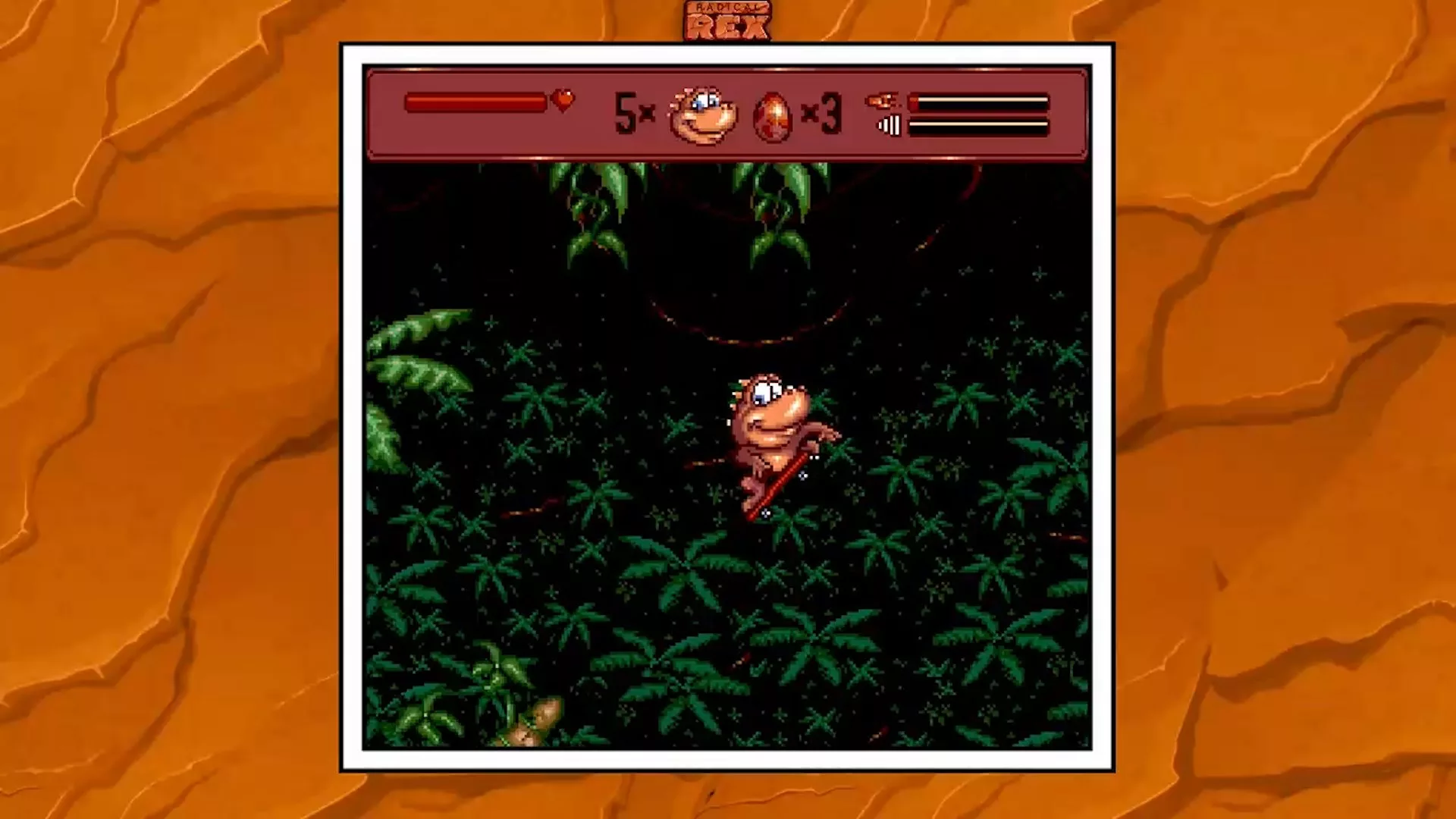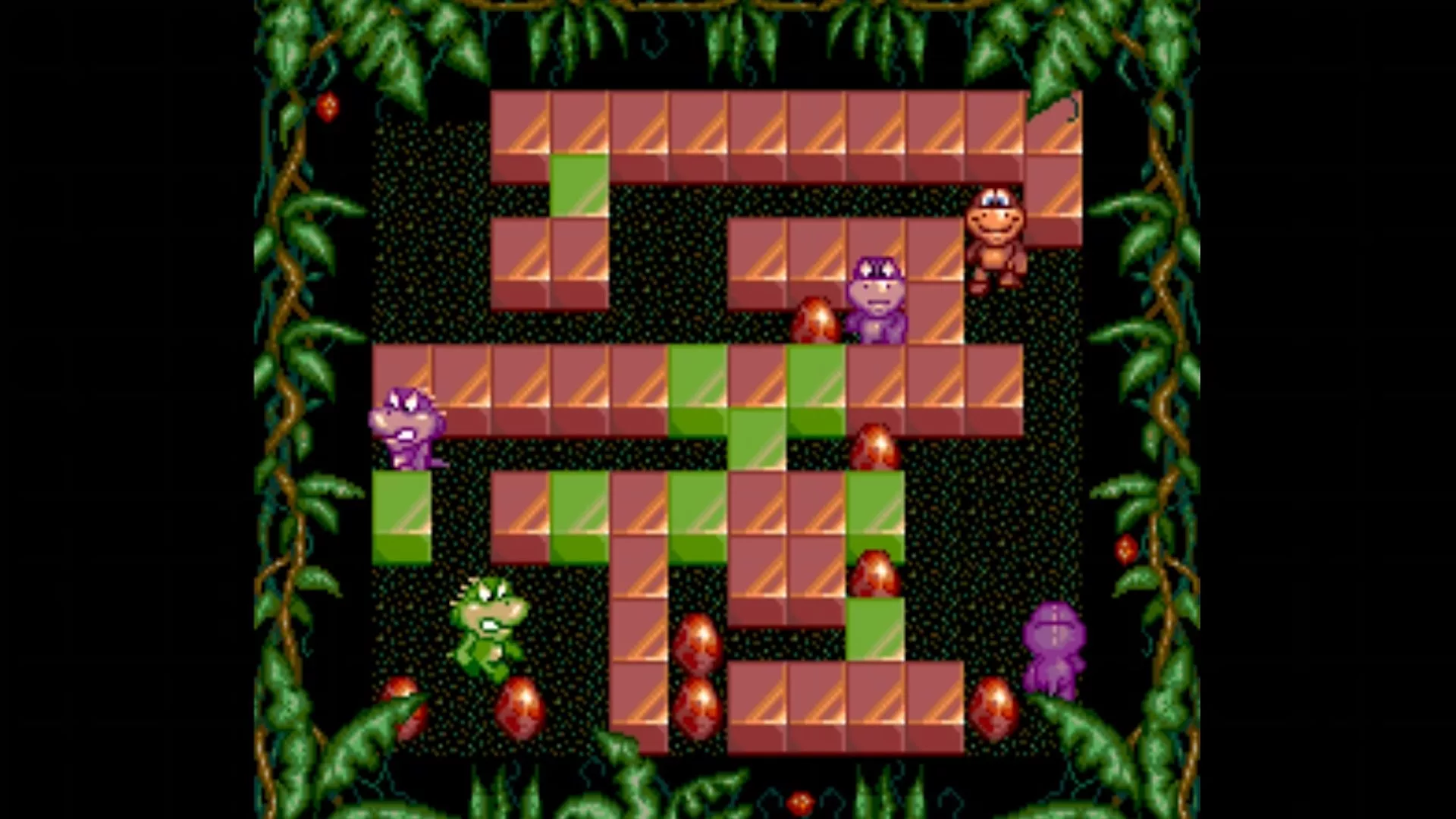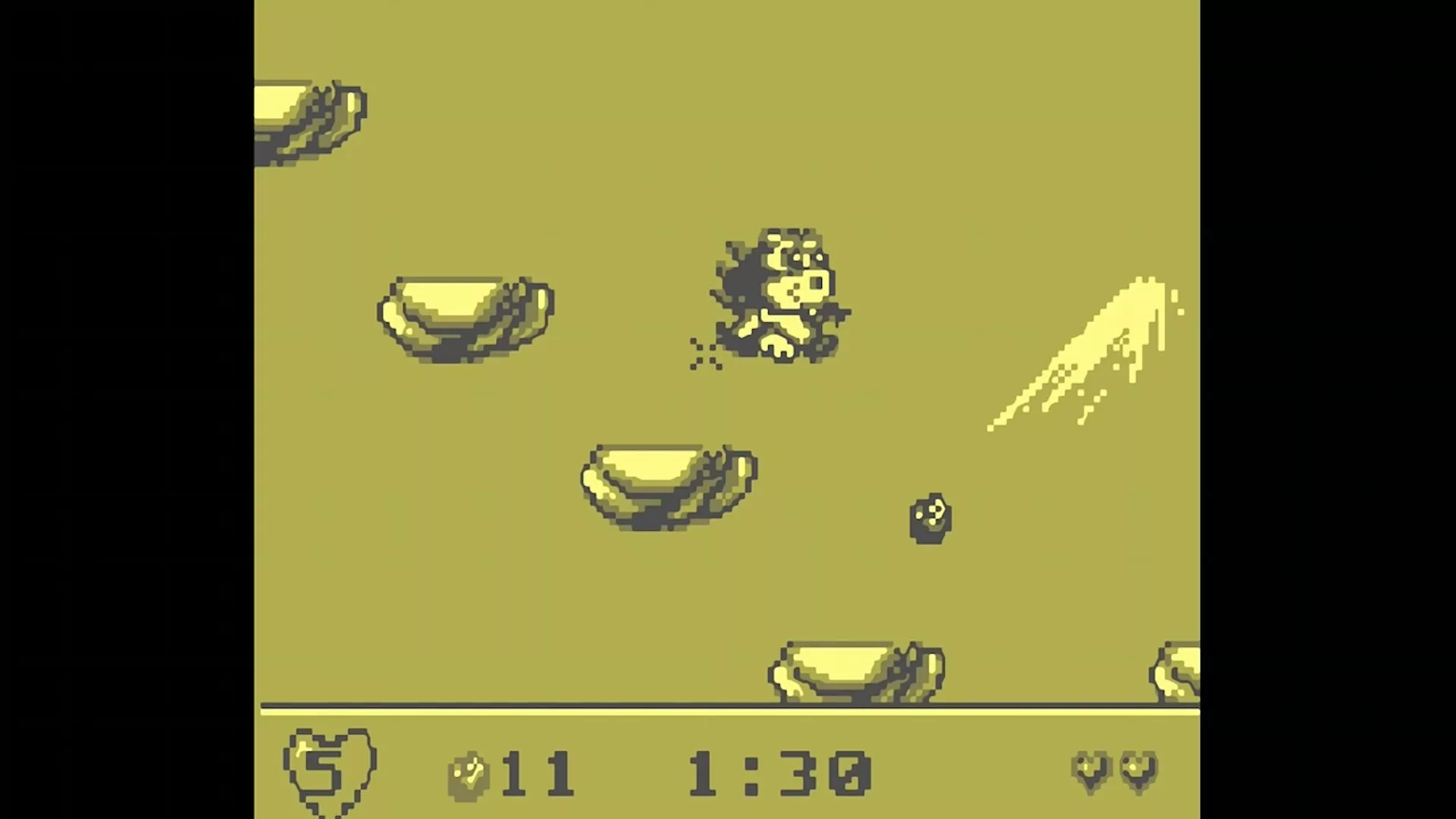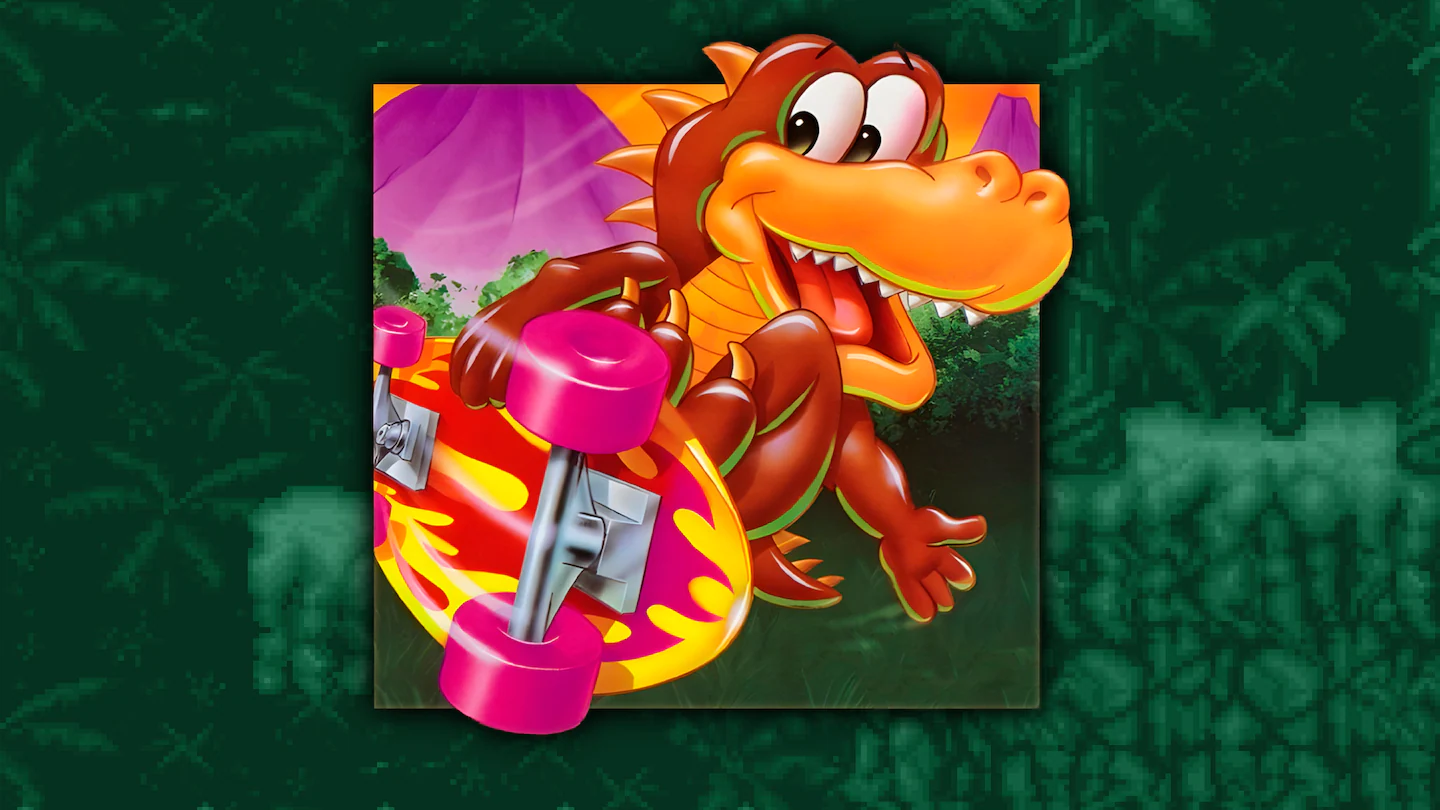Radical Rex first started as Baby T-Rex on the Nintendo Game Boy in 1993. The portable version was then remade in 1994 for the Super NES, Genesis/Mega Drive, and Sega CD and rechristened as Radical Rex. The original games were developed by Australian developer Beam Software and published by Activision.
Radical Rex tells the story of the titular character on his quest to save the dinosaur race from extinction. With his trusty skateboard and fire-breathing skills, Rex will need to survive through 10 different levels in order to accomplish his goal.

So the first thing to address is that this game contains two games: the Genesis/Megadrive version and a Game Boy version. For the former, in order to save the dinosaurs, Rex can rely on his fire-breathing ability and jump kick to beat up threats across the game’s various levels. Whereas the latter, you can’t defend yourself.
There’s a bit of gameplay variety where if you collect a level’s 80 eggs (why would want to do that), you can jump into a bonus level with an isometrical top-down view with tank-like controls where Rex moves in the last direction he faced.

So the game’s main issue is the controls, especially with the Genesis/Megadrive. Rex controls like a drunk baby and jumping is delayed by a full-on second which makes this nearly unplayable given that the game is a *platformer*. Playing a game where you have to jump to avoid enemies and hazards and the jump button feels unresponsive is just a trigger for killing the fun. Jump-kick borderlines uselessness if you don’t cook your enemies first. The Game Boy version feels a bit tighter, but that’s not saying much.
The 16-bit version has that clear Genesis/Megadrive presentation with a slightly darker visual tone and that obviously metallic tone as far as the soundtrack goes. Whereas the Game Boy version, it’s exactly what you’d expect: four variants of green showcasing the action on screen. While this sounds limiting, it’s beneficial over the Genesis/MegaDrive version given that enemies are meshed up in the background causing unjustified damage. The soundtrack is another one filled with boops and beeps.

There’s no universe where I can recommend this game. I can understand QuByte brought this game back from the dead to give it a second life, but much like The Immortal, this is another game that should’ve stayed in the past. It probably was playable back then given our expectations were quite low, but if the controls aren’t responsive in a platformer, don’t waste your time and money.
Overall
-
CX Score - 25%25%
Summary
Pros
- Another platformer…I guess?
- Game Boy version is surprisingly playable
Cons
- Crappy controls
- Repetitive
- This port doesn’t need to exist

